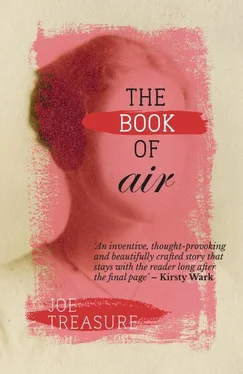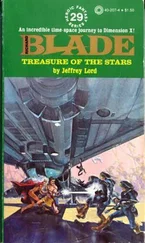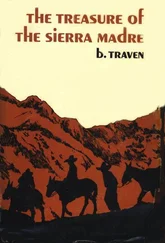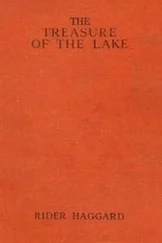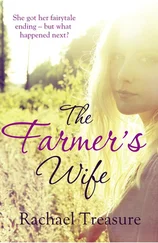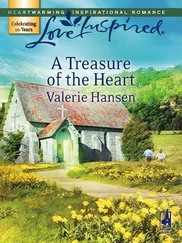So who was looking out for Penny? It wasn’t so bad as long as the bus kept moving. But everything changed when we parked in Lloyd Morgan’s field and the tyres went soft and the weeds grew.
The worst thing has happened. I thought the worst would be a flogging, or to be sent from the Hall and never study with Sarah again, but this is worse.
Mother is dead and I am locked in the red room.
I’m not the first. Were there others when I was young? Before I can remember, there were others, I know that for certain. Before I was born. I dreamt just now that they spoke to me one after another while I lay in bed.
Yesterday I was with Brendan at the O. We’d been gone from the village for two days and I thought we would come back and find everything the same.
I was comfortable against Brendan’s back as we came near the Hall and lost in my own thoughts. But something was wrong. I felt it in his body even before he spoke. He pointed and there were flecks of light away on the moorland road.
‘Go home,’ he said. ‘If something’s happened, Janet will tell you.’
I slid to the ground. Brendan took me by the wrist and held me hard. ‘Remember, Agnes. Tell no one. Trust no one.’
I nodded and he let me go.
What gives a cottage life when work is done and the candles are out? When you walk past on the street what tells you all is well with your neighbours? Do you feel the warmth of their breathing or hear through the walls the snorts of sleep? I don’t know if the silence I heard was truly different, but I knew I was alone. When I opened the door to our cottage it was the pig I thought to hear first, but heard nothing. I stood in the kitchen, wondering. Someone came in at the back and I thought a scrounger was come to murder me. Then he spoke and it was Roland. ‘Everyone was looking for you,’ he said, ‘but they’ve gone now to the moor.’
‘Then someone is dead.’
‘Where were you?’
‘Where does my mother say I was?’
‘You should come with me. Most people have set off. The men will be digging.’
‘I can’t hear the pig. Listen, Roland. She roots around in the straw under the staircase. Did mother leave her out in the yard?’
He looked at the floor then and told me, ‘Your mother is dead and the pig strung up in Morton’s shed with its throat cut.’
‘Dead of what cause?’
‘You should come with me to the moor. They’ll be finished digging soon enough. You know she must be buried by daybreak.’
‘You go,’ I said, ‘and you can tell them you found me sick and I’ll be there soon.’ I couldn’t be with Roland. He was angry with me, and I couldn’t blame him. He had more reason to be angry with me than he knew. I wanted not to be with anyone.
When he was gone, to quiet myself I went and sat in the murk. It’s a mournful place and fitted my mood. I stared out through the glass towards the broken walls of the ruin where they say the Monk once lived. The river beyond it was dark and the birch trees looked pale against it. I thought of drowning and wondered how my mother had died. I heard the warblers in the reed bed and the wind hushing them, but I had no one to hush me. No one to say, Sleep Agnes, let the old day rest behind the hill. And so I pulled the door closed to be more alone. It moved as stiff as an old dog and whined like a dog too. I knew then that the murk hadn’t always been like this, scabbed with rust and mossed over, yellow tendrils straggling across its floor, the leather chairs dry and cracked showing their insides of twisted wire and wool like a ewe caught in a hedge. It once gleamed like a scrubbed kettle and people sat happy in it. Perhaps it even moved, as people say, all by itself, its metal wheels carrying it out along the drive and over the bridge into the village, to the cottage where I used to live with mother and must now live alone. Or out past the ruin and into the forest towards the towers of the endtime and the O where the Jane Writer hums.
I remembered that in the pictures there were closed carts, much like this, that moved with no horses to pull them.
Then it came to me that while I was off enjoying strange pleasures my mother was left alone to die. It was as though a hand reached inside and squeezed the breath out of me. I knew I was to blame. I hunched over with the pain of it, resting my head on the wheel. I rocked back and forward again, hitting my head to see if one pain would drive out another. When I stopped, I felt the broken skin and saw the stain of blood on my finger. And I found I was angry. Wasn’t it always like this, Janet sapping the joy out of everything, making me feel bad? Why had the earth taken my father and let her live on, sad and useless?
After a while I took the moorland road and came on the villagers gathered for her burial. The men had done digging the pit and were laying the kindling for the fire. Faces turned to me as I walked through the bracken. The torchlight moved on them so that they seemed to scowl and grin and scowl again.
Mother’s body lay beside the pit, wrapped in a sheet. I walked towards her and the villagers moved aside, but when I came close Peter stepped up to block my way. His coat smelt warm and mealy from baking bread. Morton limped to join him all cow dung and stale milk. I said I wanted to see my mother, I wanted to see her face before they shovelled earth and stones on her. Peter looked away and said something I couldn’t hear. I pushed at him but he held me. He mumbled about the pig, and spat into the bracken, and said she wasn’t fit to be seen.
‘What, though, about the pig? Why is the pig killed?’
It was Morton who answered, his face near mine. ‘Janet cut her own throat, Agnes, as she sat with the pig for company.’ It was an unkind thought that didn’t need saying. I thought it was bad luck for Annie to have a father like that, and worse luck for me to have no father at all, and now no mother either.
I said I wanted to look at her, and I would. I knelt to pull the sheet back and saw her dead. One eye stared at nothing. The other eye was gone and the whole side of her face eaten away – the flesh like summer fruit ready for stewing, and what teeth she had left showing like plum stones.
I felt someone kneel beside me and saw it was Sarah, and was glad to have her, so kind and beautiful, beside me, and to feel she had forgotten our quarrel. She helped me to my feet and held my arm to keep me from falling. The men were airing the flames with leather bellows. The Mistress stood at the pit to say the words of the Book of Moon and all the voices in the village stumbled after, low with dread. When they said goodnight to the stars, the sound roared in my head. A mist came over my eyes – not tears, but as if I saw nothing but my own blood. When they spoke of air, my lungs emptied and all the air departed from the moor and I thought the world was done with breathing.
They passed round fennel tea to stave off sickness. But my mother had drunk fennel tea as often as anyone in the village and she had died anyway. Her body was leaky and stiff but would have limped on if her thoughts hadn’t killed her. No tea could protect her from her thoughts. I waved the bowl aside when it reached me.
The men lowered her into the pit and watched while the fire singed her sheet and smouldered and dwindled and I watched with them. The smoke caught in my throat and made my eyes water and when I could see again the fire was gone and the hole had sunk into blackness. Everyone fell to coughing. Some coughed to keep death away but I coughed because the wind blew against me and my mouth was full of ash. The only fire now was in my head – to think I would never see my mother again, to think I had wished her dead, or wished myself away from her which was as bad. The wind had carried off the smell of burning and brought in its place the sweetness of heather. I saw the dark shape of the hill against the sky, heard a blackbird and a meadowlark, felt the villagers’ impatience to be gone. It was time to gather wood and carry water. But I couldn’t stop myself from speaking.
Читать дальше
